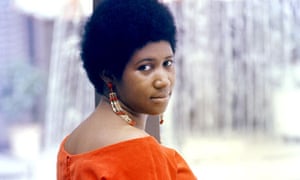 |
Alex Preston
Photo by Lucy Preston |
Alex Preston's
top 10 literary believers
From Dostoevsky to Zadie Smith, the novelist picks his favourite portrayals of characters struggling with faith
Gillian Armstrong's 1997 film version of Oscar and Lucinda.
Alex Preston was born in 1979. He lives in London with his wife and two children. His first novel,
This Bleeding City, was published in 2010. His second, The Revelations, is published this month by Faber and Faber. He also writes reviews for the Observer and the New Statesman and a regular panellist on the BBC Review. He tweets as
@ahmpreston.
" Steady, plodding relationships are not the stuff of great literature. As we all know,
happiness writes white. Friction, fissures, flaws – love stories take their energy from impediments, they thrive under the heat of conflict. The same goes for belief. Quiet, placid faith fails to stir us. It's the dark night of the soul that we want in our
fiction, the adolescent torment of Salinger's Franny or the guilt-ravaged Bendrix coming reluctantly to God in The End of the Affair.
"In previous centuries authors would have presupposed both faith and familiarity with the scriptures in their audience, but now religion has withered in the bright glare of science (at least in Britain), and our churches are increasingly Larkin's '
accoutred frowsty barn[s]'. Yet we still, some of us, feel the God-shaped hole, and courses and cults have sprung up to cater to those looking for meaning disenchanted world.
"I have always been fascinated by the outer reaches of religious experience, by the titanium-plated smiles of the born-again, by the visitations and mass-hysteria of Christian evangelicals. It's not only the secrecy and intrigue of those closed worlds; it's the way their members seem to have found an answer to so many of life's great questions. Frankly I'm envious. So when I read and write about believers, it's partly that I'm trying to find an authentic way into what they've got. So far I've not had much luck. Perhaps this is why it's characters in books who struggle with, rather than revel in, their faith who attract me.
"The four young friends in The Revelations all believe, but their conviction is tested to breaking point by the tragedy that unfolds over the course of a weekend religious retreat. Doubt stalks their every footstep, the charismatic priest who leads them suffers his own crisis of faith; that some of them are still believers at the end of the book is a kind of miracle."
Marcus and Abby Glass, two of the heroes of The Revelations, take their surname from Salinger's precocious family. Franny's breakdown in the second story perfectly captures the headrush of adolescent spirituality (and its resultant comedown). I have always been a little bit in love with her which is, I suppose, creepy, now I'm over 30 and she's still at college.
Alyosha is a novitiate Russian Orthodox monk, Jesus-like, compassionate but totally powerless. He clashes with his brother Ivan, a rationalist and an atheist. Alyosha isn't divorced from the real world, though; he is a realist. As Dostoevsky says: "Faith, in the realist, does not spring from the miracle. But the miracle from faith."
Literary grandees from Updike to DeLillo tried (and mostly failed) to represent the east/west cultural clash in the post-9/11 years. The most nuanced and sympathetic portrait of the experience of British Muslims comes earlier, in the form of Samad Iqbal, a devout believer attempting to fit his faith to his adopted nation. When tempted by his children's music teacher "he felt a cold thing land on his heart and knew it was the fear of his God". A character funny, touching and tragic in equal measure, through Samad Iqbal we understand the burden of the comfort of faith.

A high-ranking Freemason who suffers an extraordinary theophanic episode when the god Jahbulon is revealed to him in a vision, Sir William Gull uses the prostitutes he kills in the East End of London to satisfy an ancient religious blood rite. The image of the future in which a vast City skyscraper rears up above the crazed royal physician seems strikingly relevant as we survey the wreckage of the post-crash financial system: Gull's mystical cult seeks to perpetuate male dominance of society. Written at the start of the bubble that just burst, testosterone-fuelled derivatives traders were the offspring of Sir William Gull's gruesome satanic rituals.
A Marxist Jesuit practicing a kind of religious fascism, Naphtha is one half of the dialectic duo that will bring Hans Castorp to his Bildung. The dark mirror of Settembrini's rational humanism, for Naphtha piety and cruelty are inseparable. Naphtha struggles with his inability to achieve the "graveyard peace" which he sees on the faces of his fellow believers. His death, like his life, is shockingly uncompromising.
Brought up by a fundamentalist father from the Plymouth Brethren, Oscar sees "God's hand everywhere about", whether in gambling dens, at the racecourse or in the fate that brings him to Lucinda. "Our whole faith is a wager," he tells her. "We bet that there is a God. We bet our life on it."
A Chilean priest and member of Opus Dei, Lacroix is the narrator of this deathbed novella of religious compromise and hypocrisy. A priest for the ease of lifestyle it offers, Lacroix's real calling is literature. He meets Pablo Neruda and Ernst Jünger, gives lessons in Marxist theory to General Pinochet, and then, in a brutal final scene, realises that Santiago's principal literary salon has been held above a torture chamber. As he slips towards death, a hesitant truth begins to reveal itself …
Esti is the barren, lesbian wife of an Orthodox Jew, Dovid. Although only a foil (and lover) to the ballsy heroine, Ronit, this frail, silent character carries the heart of the novel with her. Esti is trapped with a paunchy, neurotic husband she doesn't love by her devotion to her religious belief. A book about a world that is at once bafflingly alien and surprisingly familiar.
While his lover Sarah's faith is stronger, Bendrix's tentative, stumbling epiphany brings the novel to its breathtaking end. Greene pits the jealous lover against a jealous God; there will only ever be one winner. Bendrix's lament of "I hate You as though You exist" finally, reluctantly, becomes a prayer: "O God, You've done enough, You've robbed me of enough, I'm too tired and old to learn to love, leave me alone for ever."
Kempe's autobiography, dictated to an amanuensis, is the occasionally hilarious record of her attempts to relive Jesus's life. Her visions are full of male genitalia and gore, but they are also surprisingly touching (particularly the scene in which she makes a hot drink for the Virgin Mary to comfort her after the crucifixion). We read of Kempe's meeting with that other great medieval mystic, Julian of Norwich. Julian's Revelation of Divine Love is more spiritual and pious; The Book of Margery Kempe is more fun.
http://www.guardian.co.uk/books/2012/feb/01/alex-preston-top-10-literary-believers
































